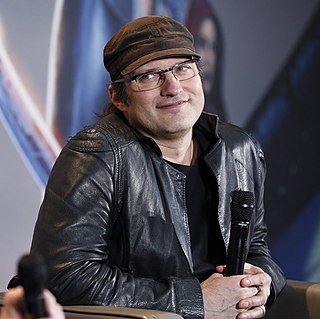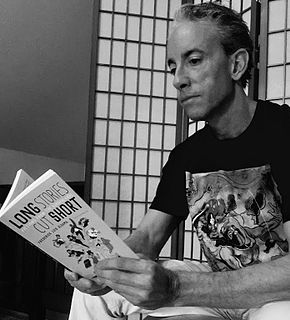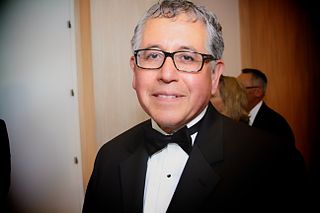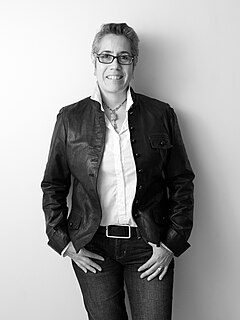Chicano/Latino Film Forum was an association of Latino filmmakers, students, academics, and audience members that was active in the Austin, Texas area from 1993 to 1999.

Austin is the capital of the U.S. state of Texas and the seat of Travis County, with portions extending into Hays and Williamson counties. It is the 11th-most populous city in the United States and the 4th-most populous city in Texas. It is also the fastest growing large city in the United States, the second most populous state capital after Phoenix, Arizona, and the southernmost state capital in the contiguous United States. As of the U.S. Census Bureau's July 1, 2017 estimate, Austin had a population of 950,715 up from 790,491 at the 2010 census. The city is the cultural and economic center of the Austin–Round Rock metropolitan statistical area, which had an estimated population of 2,115,827 as of July 1, 2017. Located in Central Texas within the greater Texas Hill Country, it is home to numerous lakes, rivers, and waterways, including Lady Bird Lake and Lake Travis on the Colorado River, Barton Springs, McKinney Falls, and Lake Walter E. Long.
The original co-founders of the Chicano/Latino Film Forum were Alex Avila , Cristina Ibarra , and Rene Renteria . The original purpose of the organization was to promote Latino filmmaking and to bring filmmakers and audiences together on a regular basis to view media projects largely unavailable to an audience hungry for such programming. [1]
Seldom were films programmed for audience screening without the presence of at least one of the principal filmmakers. Over the course of the life of the project, the Chicano/Latino Film Forum presented the works of such film personalities as Carlos Avila, Jesse Borrego, Hector Galan, Nancy de los Santos, Efraim Gutierrez, and many others.

Jesse Borrego is an American actor. He is best known for his roles as Cruz Candelaria in Blood In Blood Out, Jesse V. Valesquez in Fame, Gael Ortega in 24, and as George King in Dexter.
In 1996, co-founder Cristina Ibarra left the group and named Sandra Guardado as her replacement as a co-director with Avila and Renteria.
The Chicano/Latino Film Forum was active at a time when Austin was emerging as a viable independent, regional film scene thanks to the success of such Austin-based filmmakers as Richard Linklater ("Slacker" and "Dazed and Confused") and Robert Rodriguez ("El Mariachi"). [2] Other Austin-based film organizations that emerged at the time include the Austin Film Society, Reel Women, Austin Filmworks, and the Austin Cinemaker Co-Op. [2] From its inception, the directors reached out to other filmmaking communities and Latino festivals. The Chicano/Latino Film Forum provided judges for the first ever South By Southwest Film Festival. And group members helped to program some aspects of other Latino film festivals such as CineFestival in San Antonio , CineSol in the South Texas Valley , and Cine Las Americas in Austin. [3]

Richard Stuart Linklater is an American filmmaker. Linklater is known for his realistic and natural humanist films, which revolve mainly around suburban culture and the effects of the passage of time. His films include the observational comedy film Slacker (1990); the coming-of-age comedy Dazed and Confused (1993); the romantic drama film trilogy Before Sunrise (1995), Before Sunset (2004), and Before Midnight (2013); the music-themed comedy School of Rock (2003); Boyhood (2014); and the rotoscope animated films Waking Life (2001) and A Scanner Darkly (2006).

Robert Anthony Rodriguez is an American filmmaker. He shoots, edits, produces, and scores many of his films in Mexico and his home state, Texas. Rodriguez directed the 1992 action film El Mariachi, which was a commercial success after grossing $2 million against a budget of $7,000. The film spawned two sequels known collectively as the Mexico Trilogy: Desperado and Once Upon a Time in Mexico. He directed From Dusk Till Dawn in 1996 and developed its television adaptation series (2014–2016). Rodriguez co-directed the 2005 neo-noir crime thriller anthology Sin City and the 2014 sequel, Sin City: A Dame to Kill For. Rodriguez also directed the Spy Kids films, The Faculty, The Adventures of Sharkboy and Lavagirl, Planet Terror, Machete, and Alita: Battle Angel. He is a friend and frequent collaborator of filmmaker Quentin Tarantino, who founded the production company A Band Apart, of which Rodriguez was a member. In December 2013, Rodriguez launched his own cable television channel, El Rey.
The Austin Film Society (AFS) is a non-profit film society based in Austin, Texas. Founded in 1985 to exhibit independent, experimental, foreign and various other non-mainstream art films, the film society has grown from just film exhibition to fostering independent filmmaking in Texas and has served as a cornerstone in building the film industry in Austin. The film society also owns and maintains Austin Studios, hosts the annual Texas Film Awards gala, and oversees the Austin Film Society grant program. The film society was founded by film director Richard Linklater, who currently serves on the board as artistic director. Other notable members on the board and advisory board include Tim McCanlies, Robert Rodriguez, Charles Burnett, Guillermo del Toro, Jonathan Demme, Mike Judge, John Sayles, Steven Soderbergh, Paul Stekler and Quentin Tarantino.
By 1999, the emergence of viable web video, and the growth of Cine Las Americas, a locally based Latin American Film Festival, (mostly Latin American imports) made the need for the Chicano/Latino Film Festival less imperative and the volunteer directors quietly dissolved the group.







